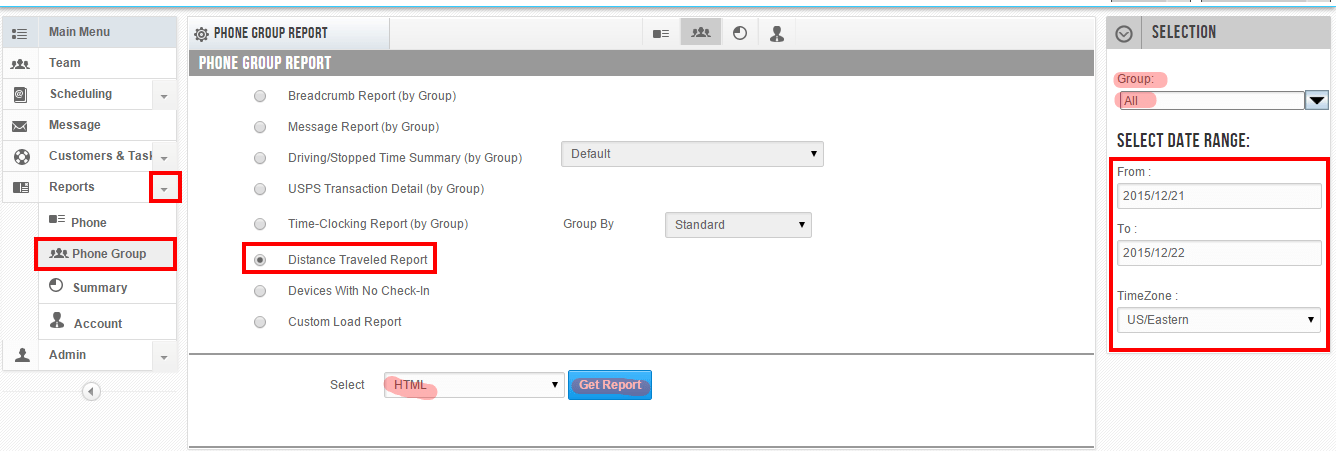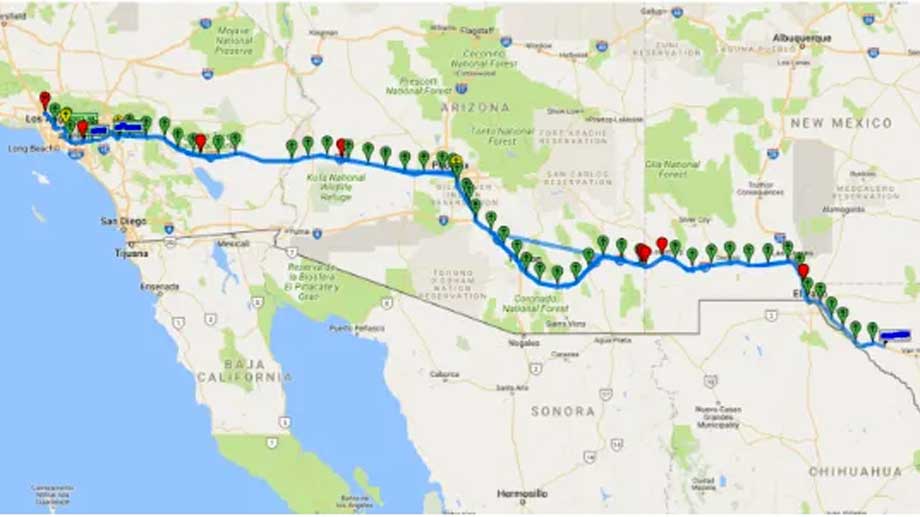As home healthcare businesses continue to grow and expand their services, one area of concern that often arises is the rising cost of mileage reimbursement. With caregivers and other healthcare professionals regularly traveling to patients’ homes, the cost of fuel and vehicle maintenance can quickly add up, putting a strain on the bottom line.
So how do home healthcare businesses monitor and track their field staff for patient attendance? How do they appropriately reimburse caregivers for the mileage so as to not run afoul of labor & tax laws. How can they optimize their field operations to reduce cost?
Mileage is a growing expense since many of the field staff drive their own vehicles and need to be reimbursed for the many miles they drive to visit patients. Businesses are becoming aware that mileage costs are eating into their profit margins.
According to a study conducted by the Association of Certified Fraud Examiners (ACFE) in 2020, expense reimbursement fraud, including mileage fraud, accounted for 15% of all fraud cases reported, with a median loss of $26,000 per case.
To combat this issue of rising mileage costs and erroneous reporting, many home healthcare businesses are turning to innovative solutions, such as home health mileage trackers and mileage reimbursement policies, to control costs and keep expenses under control.
In this blog post, we’ll explore some of the most effective strategies that home healthcare businesses can use to manage their mileage costs, including the use of technology, best practices for tracking mileage, and tips for optimizing reimbursement policies.
These insights can help you streamline your operations, reduce expenses, and improve the quality of care for your patients. So let’s dive in and explore how you can control rising mileage costs in your home healthcare business!
Challenges in Healthcare Business
Healthcare businesses face several challenges when tracking mileage, especially when it comes to healthcare mileage reimbursement for employees who are required to travel for work. Some of the key challenges include:
Manual miles recording:
Manual recording of mileage is often prone to errors, which can lead to inaccurate mileage reporting and reimbursement. To address this issue, businesses need a more efficient and accurate way to track their staff when they are out in the field. Relying on manually entered mileage reports is not only difficult for employees to keep track of, but also susceptible to inaccuracies due to factors such as traffic conditions and route changes.
Compliance with reimbursement policies:
Healthcare businesses need to ensure that their home care mileage reimbursement policy is in compliance with federal and state regulations. Failure to comply can result in legal and financial penalties.
Accuracy in tracking mileage:
To ensure accurate reimbursement, healthcare businesses need to accurately track mileage using a home health mileage tracker or a caregiver mileage reimbursement log. This can be a time-consuming process that requires meticulous attention to detail.
Managing reimbursements across different pay periods:
Healthcare businesses need to ensure that mileage reimbursements are processed and paid out in a timely manner, even if the travel occurred during a different pay period.
Keeping up with technological advancements:
As technology advances, healthcare businesses may need to adapt their reimbursement processes to include the use of mileage reimbursement apps or other digital tools to streamline the process and ensure accuracy.
Thus, healthcare businesses face several challenges when it comes to tracking mileage and managing reimbursements for employees who travel for work. However, by implementing effective policies and procedures, leveraging technology, and staying up-to-date with regulatory requirements, healthcare businesses can overcome these challenges and ensure compliance and accuracy in their reimbursement processes.
Tips For Optimizing Reimbursement Policy
Optimizing reimbursement policies for mileage in the healthcare industry can be challenging, but there are several tips that can help improve efficiency and accuracy. Here are some tips for optimizing reimbursement policies for healthcare mileage:
Clear and comprehensive mileage reimbursement policy:
Your reimbursement policy should be detailed and easy to understand. It should outline the mileage rates, eligible expenses, documentation requirements, and reimbursement procedures. Make sure that your policy is in compliance with state and federal regulations.
Implement a mileage tracking system:
A mileage tracking system can help you accurately track and record mileage expenses. Consider using a mobile app or web-based platform to make tracking easier for your employees. A good mileage tracking system will automatically calculate mileage rates based on the distance traveled, and provide a digital record of all expenses.
Provide training and support:
Make sure that your employees are trained on the mileage reimbursement policy and know how to use the tracking system. Provide ongoing support and answer any questions they may have about the policy or process.
Standardized reimbursement rate:
Instead of reimbursing mileage based on actual expenses, consider using a standardized reimbursement rate. This can simplify the reimbursement process and help you avoid discrepancies between employees.
Review and update your policy regularly:
It’s important to regularly review and update your reimbursement policy to ensure that it remains current and in compliance with regulations. Make sure to communicate any changes to your employees in a timely and clear manner.
By implementing these tips, you can optimize your healthcare mileage reimbursement policy and make the process easier for your employees.
How Can EVV Software Help?
Electronic Visit Verification (EVV) software like allGeo can be highly beneficial for healthcare businesses in overcoming the challenges associated with mileage tracking and reimbursement. Here are some ways in which allGeo can help:
Automate mileage tracking:
allGeo’s EVV software can automatically track mileage using GPS pr Geofencing technology, eliminating the need for manual entry and reducing the potential for errors. This saves time and reduces the burden on employees who would otherwise need to keep detailed records of their travel.
Verify travel to ensure compliance:
allGeo’s EVV software can verify that travel occurred in accordance with the home care mileage reimbursement policy and applicable regulations, providing an additional layer of compliance and accountability.
Streamline reimbursement processes:
allGeo’s EVV software can integrate with payroll and accounting systems to automatically process and pay out mileage reimbursements, reducing the administrative burden on healthcare businesses and ensuring timely payment to employees.
Customized reimbursement rates:
allGeo’s EVV software can be customized to accommodate different reimbursement rates for different types of travel, such as mileage rates for personal car use or rates for using public transportation. This eliminates the need for manual calculations and record-keeping.
Real-time monitoring and reporting:
allGeo’s EVV software provides real-time monitoring and reporting on mileage, allowing healthcare businesses to stay on top of employee travel and identify potential issues or compliance concerns as they arise.
Privacy Controls for Tracking Mileage:
In order to facilitate mileage tracking through allGeo, the field personnel must install the allGeo application on their smartphones. They initiate their workday and commence logging their mileage upon clocking-in. The system automatically tracks the distance traveled by the field staff while visiting patients. Upon clocking-out, the tracking function on the application is automatically deactivated. Generating mileage reports is a swift process for managers on the allGeo platform, and employees can also access them through the allGeo app installed on their phones.
Overall, allGeo’s EVV software can help healthcare businesses overcome the challenges associated with mileage tracking and reimbursement by automating processes, providing real-time monitoring and reporting, and ensuring compliance with applicable regulations and policies.
By implementing an automated mileage tracking system that takes into account real-time traffic conditions and route changes, businesses can ensure that their mileage tracking is more accurate and reliable. This can help to minimize errors in reporting and reduce the administrative burden of manual tracking.
In addition to improving accuracy, automated mileage tracking can also provide valuable data to help managers make better decisions about scheduling and routing. With better field information, managers can optimize driving routes and schedule staff to jobs that are closer to their location, thereby minimizing the miles they need to drive and reducing overall costs.
Mileage tracking reports help managers get information in real time

Mileage tracking reports help managers get information in real time

Mileage tracking for segments between job sites

Segment Miles between Job Sites:
For more granular reporting on mileage, allGeo uses Geofencing technology to track employees as they go from site to site. Geofence creates a virtual perimeter/fence around a particular location on a map. The location can be any area of interest such as your office, home, warehouse, customer place, job sites and more. By marking the area on a map, you can automatically monitor activity such as entry, exit and the time spent inside the area. Furthermore, if the drive from one job site to the second job site is 50 miles away, you will be able to automatically track & verify that.
Conclusion
Home healthcare businesses can control rising mileage costs by implementing effective mileage tracking systems. By utilizing technology centric solutions such as allGeo, field staff can accurately track their mileage and reduce the risk of errors or fraud. In addition, managers can use the generated mileage reports to optimize route planning and improve efficiency. By reducing unnecessary mileage and optimizing travel routes, home healthcare businesses can reduce costs and improve profitability. Overall, effective mileage tracking and management can help home healthcare businesses stay competitive in a rapidly evolving industry.
About allGeo
allGeo helps SMBs and Enterprise businesses better manage mobile workforce and field operations with tools such as real-time location, GPS time and attendance, geofence visit logs, Lone worker safety, Mobile forms and more! All the tools can be highly customized to fit each use case. The platform features a powerful rules engine and integrates with popular back-end CRM, HRMS, and Payroll systems to automate day-to-day operations.
allGeo serves customers from a wide range of industries including field service management, trade services, emergency responders, sales reps, transportation & logistics, oil & gas, home health care providers. These customers do report improvement in productivity and savings in payroll.
Home healthcare providers need to adopt technology that helps them run their business more efficiently. The benefits of mileage tracking and mileage optimization far outweigh the investment in acquiring and deploying this kind of technology. Are you ready to take the next step to control your rising mileage costs?
Contact us for your own workflow and solution review.



